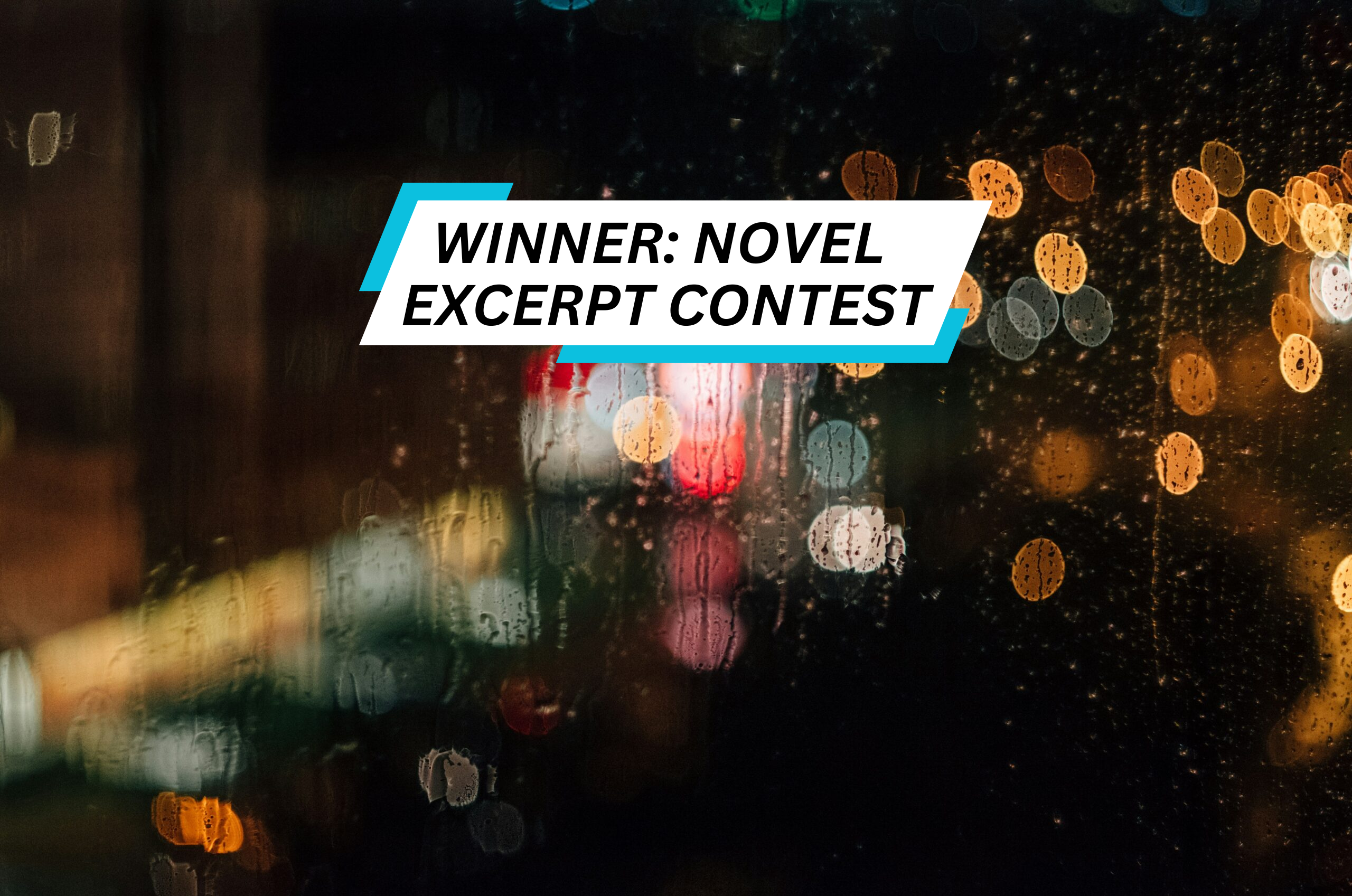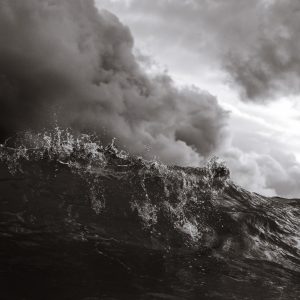We met in college, which is to say, Ohio. A small liberal arts school you’ve probably heard of and regard with either approval or suspicion, depending on your politics. Me, enrolled in the music conservatory, and her, art history, although really, her heart was set on baking. It was a coffee shop sort of thing, then a dinner-and-movie thing, and then a shared apartment. We moved fast, but the world being what it is now, can you blame us?
Before Mina, I had a vague idea of my romantic future as a perpetual bachelorhood, myself the center of a microcosm of lovers that passed through and briefly illuminated some intimation of a Parisian pied-a-terre or Roman pensione. The eager student, the opera dilettante, the businesswoman (a taste for whips and leather), the disaffected housewife (requiring young, virile rejuvenation), each a faceless iteration of womanhood that strutted and moued her way through my dreams, lounging at the piano or studying naked on the chaise lounge, legs up and twiddling behind her. For the most part, these lovers presented themselves to me separately, blissfully ignorant of the others, although I did not rule out the possibility of an orgy. (I was nineteen; please don’t hold it against me).
I asked Mina out because she put cayenne in my coffee, twice. My fault, maybe, for requesting the barista’s favorite at the campus café, but I was sleep-deprived, addled, my fingers throbbing from interminable hours at the piano, where I had been working the third theme in Liszt’s Funerailles in anticipation of my second-year examination. And a cayenne-infused mocha is a cruel thing to do to a Midwesterner, really, without proper warning, which is, I suppose, why I liked her: cruelty, tempered with sweetness.
Mina, four letters. Sugar, then bite; first on the lips, then hard palate, tongue. She’d tell me later, after we’d moved to Minneapolis together for the sake of my career as a concert pianist, that sweetness has to be cut with something to really taste it. Thus, lemon juice, espresso, sea salt, nuts, and their various butters. Thus, (and with increasingly devilish intent) chili powder, chiltepin, and habanero sprinkled lovingly over truffles and currants, left on the kitchen counter with a note reading, “Taste me.” Her sweet cut with sour, with bitter, with salt, with spice.
I think she enjoyed that, spoiling me, although even after the engagement, I wasn’t home very often. Work for concert musicians means travel: endless hours spent in transit between auditions, performances, rehearsals, the long, slow suck of checked baggage and TSA body scanners, limited leg room, hotels with questionable cleaning policies, a parade of deprivations and clerical ‘fuck you’s’ that I tolerated, largely, in exchange for the rush of stage lights and applause in far-flung cities. But not even this could stave off the occasional pangs of homesickness or the lingering regret from photos taken alone at tourist spots, late-night calls to say I love you, I miss you. And so, I came home to leftovers and test batches from the bakery where she worked, as well as Mina’s own, at-home experimentation: lopsided tarts and éclairs, cracked fondant roses, uneven macarons. It’s like you’re bribing me to stay, I told her once, savoring a mini lemon meringue pie that had failed to crisp. She smiled, a glint of that familiar mischief in her eye, but under it, something softer, sadder. Well, Andy, is it working?
When I had time, I treated her, too: Chopin and cheesecake, Debussy and baked brie.
The week that everything went wrong started with a fight. This is what you expect me to say, what I wish I could say because saying it would give what followed a neat logic, the sort usually reserved for movies and books, but if there is a logic here, it is obscured, elusive, self-effacing. It was summer, hot, the plant life running to riot and overspilling the city’s modest planters, the sky low and pregnant with rain. I had a 6 AM flight for a soloist performance in Miami, and she drove me to the airport with the usual orchestral accoutrement—suitcase, tux (still in the bag from the dry cleaners), keyboard and stand for practice in the hotel room. Starbucks. Mild hangover. (I had been out late, playing the bar at the Radisson, which I never did sober if I could avoid it).
What I don’t understand, Mina kept saying as she eased the Sentra between two vaguely phallic charter busses filled with red shirts and protest signs, is why they have to come here. Minneapolis is a stronghold. They know they aren’t going to win the vote.
I took a sip of coffee and massaged my throbbing temples. I don’t think it’s about winning the vote.
What the hell is it about then?
I don’t know. Power? Intimidation? Sucking corporate dick?
Wow, she said. Homophobia, so eloquent.
You know what I mean. She shot me a look, and I held up both hands in surrender.
We parked. Outside, the air tasted like gasoline. A crowd of red shirts formed a froth on the pavement as they collected their luggage from the undercarriage of the buses. A pair of pasty men in camo shorts and Confederate flag hats stood aside from the group, watching us. As I unloaded the trunk, I kept a hand on Mina’s elbow and angled myself to stay between her and them. The one on the left had reflective yellow shades, a gray-streaked beard that skimmed his chest; the one on the right, hipster glasses and a high-top fade. I lifted the keyboard out and slung the carrying case across my back, grabbed the tux and suitcase in my free hand and leaned in to kiss Mina goodbye, hoping to get her back in the car and away from dumb and dumber as quickly as possible, but she slipped under my arm and onto the sidewalk, where she would be in clear view. She was always doing that to me—disappearing one place, reappearing another—a deeply unsettling trick since she was at once so small and so striking, her body compact and muscular through the arms but soft and curving elsewhere, black hair cresting her brown shoulders like a thunderhead.
My expression must have been some combination of what are you thinking? and come on, let’s go, because she didn’t give me a moment to react before grabbing my shirt collar and pulling my face to hers. Her kiss was full of hunger and tongue. Her hand groping my crotch, and then it was over.
Hey, I whispered, what the fuck? But she ignored me, smoothing the wrinkles out of my collar.
“Good luck with the performances. Don’t do anything stupid.” She turned to go, tipping dumb and dumber a curt nod as she went.
###
Board Minneapolis, land Miami.
Taxi to hotel. Sleep for two hours, call the agent to discuss social media videos and why I need more of them, then meet with the conductor and talk shop over drinks and tapas. Saint-Saens. Le Carnaval des Animaux. Five shows this time: three evenings, two matinees (Saturday, Sunday), and love to have you back next season if it goes well. Toast whiskey sours with the understanding that if is a word devoid of legal tender. My soloist career occupying a space called almost: almost regular, almost international, almost enough to pay rent. Well, half of it.
After, call Mina with the intent of: I understand PDA for the sake of Loving v. Virginia, but groping me? Really? Straight to voicemail. Guess I’ll try again later.
Practice with orchestra. Violins keep coming in fast, trumpets too brassy. In the dressing room, take: aspirin for headache, Inderal for stage fright, bump of coke for luck.
And then evening when, for two hours and thirty minutes, with the spots blazing and the piano’s lower register pouring out like darkest honey, I am not myself but someone else. A second, aural body hovering dissolute above the audience, between vibrating atoms of oxygen, hydrogen, nitrogen. I am tremolo, glissando, high and strutting ostinato. L’intouchable. A menagerie: lion and rooster and donkey and tortoise. Aquarium—a wall of blue-cast and shimmering reflections, silver darting through dark green curtains—then aviary: trills and calls and chromatic warbling, a bright flute ascending, weightless as feathers. All leading to a last and ringing C Major.
Bow, then bow, then exit stage left.
Backstage and still soaring, it’s more coke (but not that much coke, no room to get messy) and then champagne, champagne, champagne just to get through dinner with donors, philanthropists, board members who care less about the music than they do the cultural cache and massive tax incentives from their charitable donation. We’re dining in some sort of centennial hall, the ceiling above us lofted, gilt and glass as a Gatsby-era greenhouse, the night sky framed for moneyed edification but muddied by light pollution so there are no stars anymore, only a navy brown churning. My table full of men with sagging jowls and crepe necks talking over wives who have been nipped, tucked, fillered into ageless Insta-women. When the conversation turns to composers, or venues, or kids these days and dwindling interest in classical music, I’m expected to give pat answers about community outreach, or audience involvement, and say absolutely nothing about cuts to public arts and education funding. Inevitably, someone mentions hip-hop or cell phones or radical, socialist agendas, and among the exclamations of agreement, my job is to shut up and stuff my face with canapés. After all, what do I know? I’m just another dancing bear to these people—watch me wave down the waiter for a second plate of salmon roe and a Sazerac with extra sugar, please.
Hours pass. Days. In the rush between venue and hotel room, the restaurants and bars and airports all blur together, streaking with velocity, color, until finally you’re allowed to stagger home, radiant with applause, bloated with liquor and salt. In a state like that, you can’t help but forget things. Important things.
Board Miami, land Minneapolis.
I called Mina again at the airport, after my return flight landed, but I wound up in her voicemail again and well, it’s Monday morning, she’s probably on her way to work. I left baggage claim to catch the shuttle, elbowing my way past commuters to get out at the right stop, and then rode the elevator to the twelfth floor, still suspecting nothing, jamming the key into the lock and jiggling the handle to get it unstuck (both maintenance and WD-40 had proved equally useless) and then, once the door was open, I smelled it. Smelled her.
The noose around the kitchen fan. The brown puddle dripping, half-clotted, onto the table under dangling calves that looked less like calves than spoiled zucchini, half-liquid flesh bursting through an off-color rind. At the end of each foot, five mottled toenails peeling off the skin like stickers on a balloon.
I closed the door. Sat, hard on the industrial hallway carpet. My suitcase thumped down beside me and rocked there until it found a balance point on its bulging front compartment. Time passed—I’m not sure how much. All I know is that when the police showed up, the suitcase was still on the ground, and I was clutching a Styrofoam cup someone had given me, both hands wrapped around it because I was shaking, in danger of splattering everything with coffee. This feeling like I’d just been shot in the chest at close range, nothing but pulp and fluid and a gaping hole where Mina used to be and some faceless cop asking where were you on the night of July 28th? and did she ever say she had a plan? and no, officer, our wedding is in six months. She bought her dress last week.
And if I could just stand there, turn my head far enough in the opposite direction, I wouldn’t have to look at that thing again when they wheeled it out on the stretcher. Not her, not Mina, and not really human, either, just some form of organic matter, of what was left after.
###
The cops said it would take the biohazard people at least a week to clean the apartment, and I needed to find somewhere else to stay while they did, so I called my brother from the overpriced coffee shop/boutique across the street to see if he could put me up. My ears were ringing the entire time we talked, as if my body, unsure how to process the shock, had decided to interpret it as an exterior explosion. I could barely hear myself, and I couldn’t hear James at all, so I just kept on apologizing: “I’m sorry? Repeat that? It’s too loud here.”
“I’m coming!” He bellowed. “Where are you?”
“I don’t know,” I said, staring blankly at a table full of owl-shaped tea towels, pink sloganized coffee mugs: #GirlBoss, #ProudBitch, #Wake&Bake. “Some goddamn place. Hell, I think.”
“Just stay on the line,” he said, a car door slamming somewhere in the background.
When he arrived, it wasn’t enough to just pop the trunk and wave me over. He parked and hugged me on the sidewalk, where the two of us blocked foot traffic. His cheek was wet, but mine wasn’t because I wasn’t crying. Why wasn’t I crying?
My god, James kept saying, and she seemed so happy, and Andy, I’m so sorry, squeezing me tighter each time he paused for breath, his arms twin snakes of vein and muscle around my soft midsection. The rest of him, leaned out and carb-deficient for summer, felt like hugging a protein bar. I squeezed him back, hardly aware I was doing it.
For most of the ride, I sat pushing buttons on the car radio, scanning from station to station, so I caught a guitar solo here, an R&B vocal there, a brrrzzz of distorted downbeat that might be trapwave or synthhop or any number of increasingly niche electronic genres.
The Camry stopped at a red light, and the crosswalk ahead of us filled. Business-suited executives toting umbrellas and briefcases, harried mothers tugging children, joggers pearlescent with sweat and mid-morning sun—all of these strangers going about their day, unaware and uncaring that the world had ended days ago in an apartment five blocks north. Didn’t they know that in most cases, hanging doesn’t kill you instantly but is instead a long, drawn-out process of kicking, struggling, gasping? Minutes, hours, sometimes days of burning lungs, scissoring feet, desperate hands fumbling at the knot, and someone, please, someone, please.
Help me. Help me. Help me.
The lights changed again, and the Camry started forward with a small jolt that lodged somewhere just north of my navel.
“Hey James?” My eyes were still dry, but my voice sounded husky, barely audible over the sound of the engine. “Stop the car, maybe?”
“Hang on,” James said, his eyes fixed on the traffic ahead. “Let me get out of this intersection. There should be parking up—”
“No.” The vowel lurched on me, turning into a belch. I was already unbuckling my seatbelt. “Now.”
“Andy, I can’t—”
But it was coming. I couldn’t stop it.
I opened the passenger door and leaned my head out, my nostrils full of hot tar, then stomach acid as I vomited a neon stream of free continental breakfast onto the pavement.
“Oh, thank god,” I said, wiping my mouth clean on my sleeve. “That feels better.”
###
August 18th, Dallas Daily Herald: “Eschewing the melodrama and sentimentality often favored by young virtuosi, Mr. Mayne approaches Mozart with the satiric attitude of the postmodernist with mixed success. One notes a sloppy personal appearance reflected in flabby technical execution far different from his stirring performance of Bach last season. Classical music fans need not regret missing this particular performance series.”
December 1st, Chicago Music Monitor: “One can’t help but come away from last night’s showcase feeling that this is an altogether different performer than the playful young pianist who opened the fall season with a witty but ultimately forgettable rendition of Mozart’s Piano Concerto No. 21. Now, offering a selection of Liszt’s Transcendental Etudes after a brief absence, a much slimmer and more subdued Mayne thrills his audience with a performance worthy of the composer himself.”
February 20th, Cincinnati Arts Enquirer: “There’s an eerie, lunatic edge to his articulation that demands attention. ‘It’s unnerving,’ said Alexander Crumpacker, stage manager for the Cincinnati Symphony Orchestra. ‘Like listening to someone spiral into insanity. Truly magnificent.’
Asked about his new sound and stage persona, Mr. Mayne responded in his familiar irreverent style: ‘My technique is the same, but the preparation is a bit different. So, instead of trying to relax and center myself right before I go on, I just down two cups of coffee on an empty stomach and then spend most of the performance praying I don’t get the sh*ts. It also helps if I stare directly at the front row and imagine myself naked.'”
May 3rd, Seattle Music Review: “Gaunt, imperious, and married to the sort of ramrod posture that will have piano teachers fawning over him for years to come, the new Mayne cuts a striking figure on stage.
‘Admittedly, it was a bit of a shock,’ joked Eleanor Van, the Symphonic’s conductor. ‘I mean, on the first day of rehearsal, we all expected to see the same chubby, goofy, sort of hipster-looking guy who’s been our go-to piano soloist for the past two years. Instead, Andy comes in for the January kick-off and our stage manager won’t even let him in the auditorium because she doesn’t recognize him. He’s lost fifty pounds. He’s lost the beard. None of his clothes fit…[but] he looks fantastic, like one of those pianists you see in avant-garde films from the 20’s.’
As for the recent rumors that the young pianist’s extreme weight loss is negatively impacting his health, Mrs. Van had this to say:
‘Concert musicians take their health very seriously. It’s a bit like being an Olympic athlete, you have to be in top-form year-round. [Mayne] isn’t an exception to that. If anything, I think the weight loss shows how committed he is to taking care of himself, which wasn’t necessarily the case when he headlined for us in September. You’ll notice that his sound has changed dramatically since then. There’s a lot more energy in what he’s doing now, more depth, more complexity, and I don’t think it would be wrong to connect some of that change to adjustments he’s made in his lifestyle. He runs. He eats clean. He’s cut down on the drinking. And it’s paying off in a lot of ways. ‘”
June 16th, Boston Post: “Boston, MA: Concert Pianist Andrew Mayne collapsed from dehydration last night during the Boston Philharmonic’s opening performance of Rachmaninov Variations, an arrangement of the composer’s most famous concertos. According to attendees, Mayne lost consciousness during a violin sonata and was revived off-stage.
‘There are very few things that will make us stop in the middle of a performance,’ says Brandon Heinz, longtime conductor for the Philharmonic. ‘But an unconscious soloist is one of them. These performers don’t have understudies, and, for pianists, there isn’t a first or even a second chair who can jump in to take your place.’ The Philharmonic offered last night’s audience refunds or replacement tickets for a Sunday matinee on June 18th.”
June 17th, Classical Music Magazine: “This fainting fit comes at a delicate time for Mayne, 24, who has become both an audience favorite and a controversial figure in the American classical music scene. We spoke to Evan Lohengrin, a former bassoonist and Music critic at the New York Times.
CMM: We often hear people describe Mayne as ‘an unconventional soloist.’ You’ve covered a lot of up-and-coming soloists in their early careers, would you say that description fits?
EV: I don’t know if ‘unconventional’ is the word I’d use, but people like Mayne because he’s an outsider. He’s not a prodigy like Lang Lang and Evgeny Kissin. He lacks the Juilliard pedigree. He’s coming out of the Midwest. He hasn’t been handled and groomed for the stage since he was 4, 5, 6 years old like many of his peers. Most virtuosi his age have been on the national stage since they were 10, but he made his debut at 18. So, there’s a bit of an imbalance there.
CMM: What about his performance style?
EV: Well, there’s performance style, and then there’s stage persona: Mayne isn’t the type of performer you bring in for Schubert or Brahms. Not because he can’t play it—I saw him do a lovely Brahms sonata in LA a few months ago, but it only worked for him as a virtuosic piece because his delivery was entirely cynical. Where Mayne thrives, where he really does best, is when he’s allowed to be humorous and brash and (more recently) neurotic in his delivery. So, people want him for Liszt, for Wagner, for Bach, for Beethoven. The Luhrman brothers with Chicago’s King’s Theatre actually had him do Philip Glass’s Heroes Symphony in a Bowie wig and full Ziggy facepaint, and both Mayne and the audience absolutely loved it. He’s able to cross that cultural divide that so many of us in the classical music world have been moaning about since the 80’s. The problem is, a lot of the old-guard directors, promoters, and conductors look at stuff like that and think it’s gimmicky because, well, it is. But it also opens the door a little for audience members who might be new to classical music.
CMM: He’s not the only one doing that, though. Why do you think Mayne, in particular, seems to ruffle feathers?
EV: No, he’s absolutely not the only one doing it. I think we’re seeing that kind of openness more and more from this new generation of soloists. But the other side of that coin, with Mayne in particular, is a certain disregard for the after-hours pomp and circumstance, and that causes trouble because it can interfere with funding. No one wants to bring in a soloist who is going to perform Tristan and Isolde and then skip the stakeholder’s dinner to play “Teenage Wasteland” at a bar somewhere—which he’s done. Or show up drunk to a private performance, which he’s also done.
CMM: What about his health? Would you say that is a major concern?
EV: Normally, I’d say that’s between Mayne and his doctor, but at a certain point, yes, it is a concern. Take Boston. Imagine you’re Brandon Heinz, and you hire a healthy rising soloist in October, and then in March, he shows up emaciated and faints during the second movement. You aren’t going to make that mistake again.
CMM: But whatever is going on with him, he does seem to be capitalizing on it. Last month, Stephanie Buttry at Seattle Music Review ran a profile on what she called the Andy Mayne aesthetic, which I understand has been divisive. What are your thoughts on it?
EV: Look, I understand there’s a certain Romantic image of the tortured artist pounding desperately away at the keys, which is great for marketing, and I’m sure both Mayne and his agent know that. But really—and I’ve said this about album covers with scantily-clad female artists, too—it should be about the music. We are talking, ultimately, about the lives and bodies of human beings. If Mayne chooses to present himself this way, and it gives him an edge in the classical music ‘marketplace’ so to speak (which, I believe it’s still too early to tell), there will be imitators. And I’m not sure what happens to us as a culture when we are no longer selling art but are forced to sell ourselves instead.”




